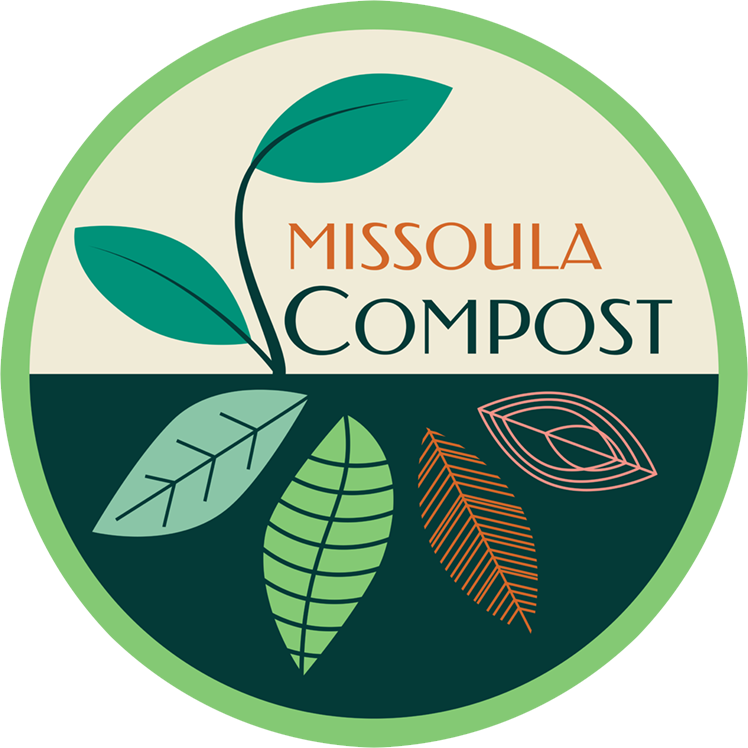Choosing Sustainability: The Environmental Benefits of Commercially Compostable Materials Over Plastic
Many of our customers have embarked on personal quests to leave a greener future for generations to come. One important consideration is the choice of materials we use in our daily lives. When it comes to packaging and disposables, the impact on the environment is significant. Join us your friends at Missoula Compost as we will delve into the environmental benefits of commercially compostable materials compared to petroleum based plastic. With a little background on the advantages of compostable materials, you can make an informed choice that contributes to a more sustainable world.
Reduction of Landfill Waste:
The North Hills in Missoula are an amazing open space available to Missoulians and visitors for accessible hiking and nature activities. The North Hills are also home to the Missoula Landfill. Each year this landfill expands, growing taller and filling adjacent valleys. One of the most compelling reasons to favor commercially compostable materials over plastic is their ability to break down naturally. Compostable materials, such as plant-based plastics or biodegradable fibers, can be processed in commercial composting facilities, where they decompose into nutrient-rich compost. The compost is then spread throughout the valley in home gardens, public parks, and in restoration projects. This reduces the amount of waste sent to landfills, minimizing the environmental impact associated with an ever growing landfill.
Mitigation of Greenhouse Gas Emissions:
When compostable or non compostable products break down in landfills, they release greenhouse gasses, contributing to climate change. Methane is one of the more potent green house gasses created when organic materials break down without the presence of oxygen, such as below the surface of a landfill. Composting organic materials on the other hand, including commercially compostable ones in controlled environments allows for the breakdown of waste without releasing significant amounts of harmful gasses. This helps mitigate greenhouse gas emissions, reducing our carbon footprint and addressing the urgent need to combat climate change.
Conservation of Finite Resources:
Plastic is derived from fossil fuels, which are non-renewable resources. By opting for commercially compostable materials, we can reduce our reliance on fossil fuels and conserve these limited resources for more critical uses. Compostable materials, often made from renewable resources like plants or agricultural waste, offer a more sustainable alternative that aligns with long-term environmental goals. When sustainable agriculture is used to produce compostable products, it is a win-win situation all around.
Prevention of Wildlife Harm:
Plastic pollution poses a grave threat to wildlife. Animals can become entangled in plastic debris or mistakenly ingest it, leading to severe injuries or even death. Throughout the oil production process, oil leaks can contaminate rivers and stream and get into ecosystems and cause lasting effects. Choosing compostable materials decreases the likelihood of harming wildlife when they are properly disposed of. If compostable materials find their way into natural environments, most will break down naturally and do not persist as long-term hazards for wildlife.
Soil Enrichment and Agricultural Benefits:
Composting commercially compostable materials results in nutrient-rich compost that can be used to enrich soil. This compost enhances soil fertility, promotes plant growth, and reduces the need for chemical fertilizers. By supporting the use of compostable materials, we contribute to sustainable agriculture practices and the preservation of healthy ecosystems.
Opting for commercially compostable materials over plastic represents a significant step toward environmental sustainability. From reducing landfill waste and mitigating greenhouse gas emissions to conserving finite resources and protecting wildlife, the benefits of compostable materials are substantial. By making conscious choices and embracing compostable alternatives, we can help create a healthier planet for future generations. Let us prioritize the well-being of our environment by promoting the use of commercially compostable materials and actively contributing to a more sustainable future.

